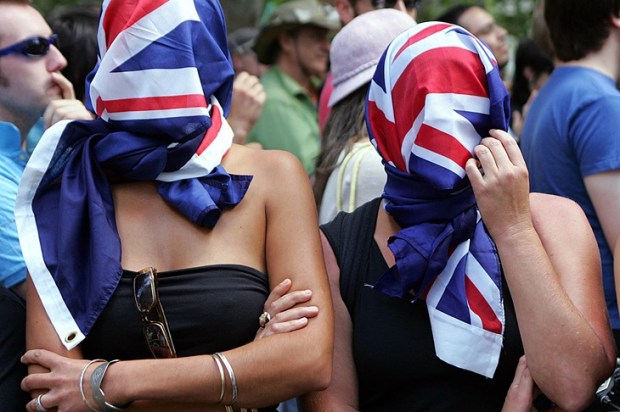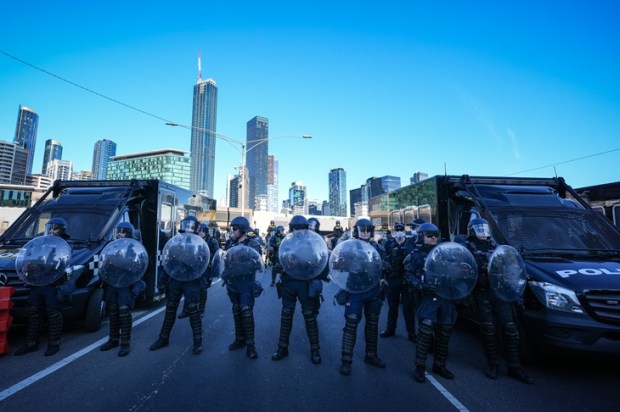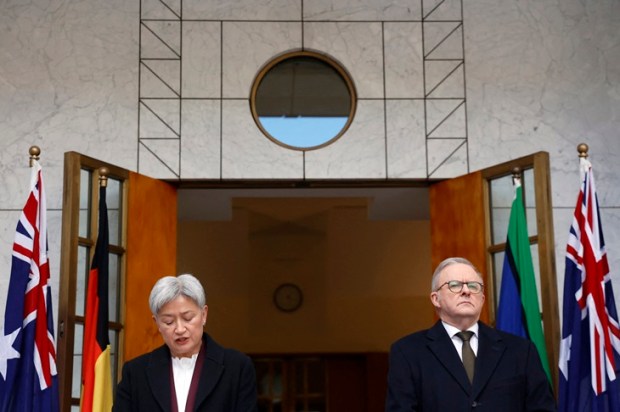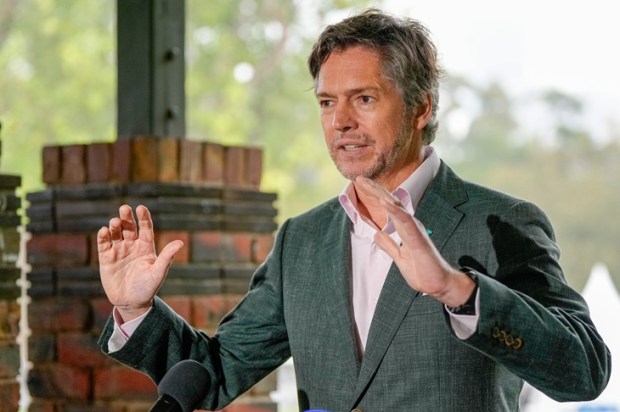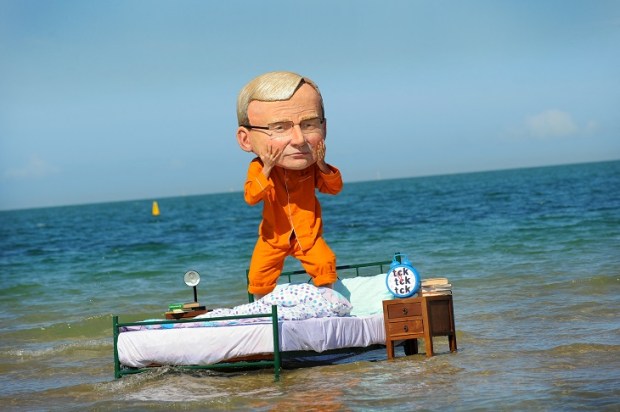When 9 News put out a story on Twitter this week claiming a pack of four wongari had attacked a woman at K’gari – no one had the faintest idea what they were talking about.
Once translated, it became clear that four dingoes had attacked a woman on Fraser Island – something not altogether unexpected considering Fraser Island has been gaining an unfortunate reputation for its thin, hungry, and aggressive wild dingoes.
As far as a rebranding exercise goes, tourism on the island can start afresh, distancing itself from the infamous Fraser Island dingoes. For a few weeks, at least. Rumours of K’gari wongari would likely scare the pants off beach-loving tourists and there’ll be plenty of wongari headlines to replace the memory-holed dingo stories by the end of the decade. Maybe they can be the new Dropbears?
The unfortunate nature of the story was overshadowed by public annoyance at Fraser Island’s recent name change to ‘K’gari’. If a social media backlash is anything to go by, the general public aren’t happy and the addition of suddenly calling dingoes ‘wongari’ has only served to aggravate the issue.
‘Chased by four what? Where?’ replied Sky News Australia host, Rita Panahi.
‘Wild dingo attacks and now something called a Wongari is on the loose. What the hell is that, a carnivorous Oompa Looma?’ wrote one user.
‘I think you need to proofread your posts. It happened on Fraser Island and they were dingoes…’ added another.
The bulk of the remaining comments simply corrected the words to ‘Fraser Island’ and ‘dingoes’. If Queensland were to take a casual poll of Australia and ask what its citizens would prefer to call Fraser Island, odds are most want to stick with the name they remember. A place having parallel names is one thing, but the removal of its former name has crossed an interesting social line, not least because every time K’gari is used, Fraser Island has to be put in brackets before people click onto something else.
Forcibly renaming loved locations, which have lived in the public psyche for two centuries, is driving the racial wedge further through Australia ahead of the Voice referendum. And it shows. Every time a renaming stunt hits the headlines, support for the Voice declines with opinion polls reaching their lowest point last week.
It doesn’t help that renaming famous locations is usually followed by what can only be described as racially-motivated lockouts where non-Indigenous people – who are still Australians – are banned from public National Parks with the excuse of ‘spiritual reasons’. Oddly, these spiritual reasons never extend to the public money used for the park upkeep.
Imagine for a moment if colonial heritage sites decided to ban Indigenous people because their presence offended the spiritual gods of colonial ancestors… It would be the end of life as we know it, but for some reason the reverse-racism is accepted without scrutiny, complaint, or query by our state governments – including the Coalition – which wholly failed to uphold their party commitments to freedom and equality.
Suspicion about renaming places and all the lockouts that tend to follow has changed public behaviour. People have gone from being polite about things like Ayers Rock becoming Uluru (although the former is coming back into fashion as a form of protest) to a fair bit of vocal hostility. It’s the type of thing you hear brought up at pubs and cafes when before it was never mentioned.
Who can blame them?
Left-leaning publications are practically giddy with excitement at the prospect of erasing Colonial-era names (and their attached history) after perceiving it as a form of virtuous decolonisation. Many of the articles published on the matter are, frankly, unhinged from reality. A more sober reading of the situation might find it strange that decolonisation fails to include the enormous wealth of civilisational benefits and advances – particularly for women, whose experience as a gender for the last forty-odd thousand years has been less than equitable under tribal rule.
Have you seen any inner-city activists decolonise themselves from the CBD or their local UberEats? Do they really want to give up healthcare and the agricultural industry that feeds them every day? No. They would never go and live on the other side of The Gap in remote areas that have had the least interaction with colonialism.
The level of disrespect many in the activist community show toward the pioneer Australians who built the roads and cities beneath their feet is astonishing, especially coming from a generation that has built precisely nothing except a racial framework to constrain democracy. And that is nothing to be proud of.
Marxism’s rewrite of Australia is in full swing and without oversight our story as a nation has become swamped with lies, exaggeration, misinformation, and what can only be described as an acid-trip version of history. Once Australia’s place names are gone, there will be nothing holding back the Blak Armband version of Australia and all that comes with it… Pay the Rent? It’s a serious proposition by people with real power to extort money from our children because of their skin colour. That such a thing is uttered in this country’s polite society is testament to the depravity of an ideology left to glorify race as a bankable virtue. How we reached this point is incomprehensible.
Having seen various lists of demands, Australians are worried that their children won’t be allowed to go for a fish on the river without paying a fine related to their race, or walk the old bush tracks because their race somehow offends the spirits of the land, or maybe they could even find themselves as perpetual squatters, unable to dig a flower bed on their own property without paying tribute to an Indigenous bureaucracy. Even conservation is falling victim to greedy activism under the new rules in Western Australia.
The whole saga of ‘decolonialisation’ has become as cheap and embarrassing as warring Welcome to Country ceremonies out the front of every event, regardless of how minor. It’s turning into a mantra muttered with the same insincerity as obedience to a dictatorial figurehead. Today, it rarely feels as if we are ‘welcoming’ anyone or ‘acknowledging’ anything other than the activist bureaucracy.
Australia was a better, friendlier, more united, and racially integrated country before the rise of ‘Sorry’ activism. Those who criticised the movement in its cradle were right to do so. The flood gates have been opened. As a nation, we are rewarding racial division with money and political power. The definition of ‘Aboriginal’ never mattered in a legal sense before because there was no state-sanctioned privilege associated with race in this country. That is no longer the case. Race has added itself to the game of identity politics.
Community tensions are rising as this social environment continues to fester, and it can be seen on social media discussions.
If politicians don’t back down from their relentless attack on the ethnicity of the majority of citizens, they will create genuine social unrest the likes of which this country has never seen. The potential for disaster is huge. This is a real mistake that cannot be fixed with a quick election cycle and a few feel-good hashtags. Most countries in history have walked down this road before while caught up in the easy politics of division and it didn’t lead them anywhere good.
Australia is being erased, one word at a time. Soon, our spirit will be erased too. Someone will have to say ‘No’ before things get our of hand. If our politicians lack the courage, Australians will get their chance later this year.
Flat White is written and edited by Alexandra Marshall.


